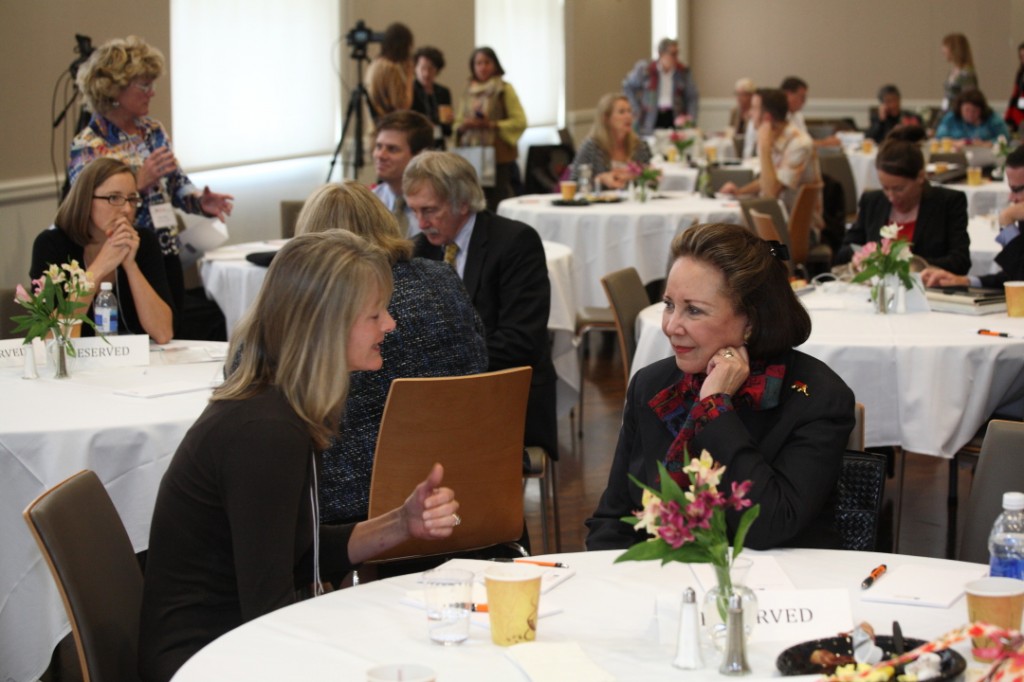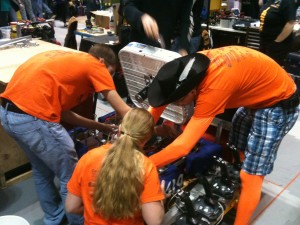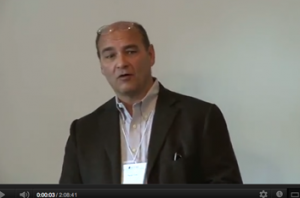

Deb Zehner chats with Alma Powell after the keynote.
Welcome to the Youth-Nex blog. Let’s continue the conversation started at the Youth-Nex middle school conference. Simply reply to posts here or email edaniels@virginia.edu to contribute your own post. You can also subscribe at the top right of this post.
As they accumulate, related posts will be found “under one roof” so to speak, under Middle School Conference 2012.
The first entry is by Deb Zehner, Management Consultant (with a specialty in social network analysis), NetVision LLC. Deb works closely with U.Va. business professor Rob Cross. Their application of social network analysis has traditionally been in the business sector but they are transitioning to the educational sector as well. More on the business application of social networking can be found here. Comments from her 13-year old daughter follow her post.
Youth-Nex’s In Between Conference, held Oct. 18-19, surpassed my expectations. I attended for two reasons. First, to explore possible applications of social networking to benefit middle school students by better understanding what adolescents need and how the schools are serving those needs. Second, for practical ideas of how I could get involved in a hands-on way myself. A nice side benefit was that I gained knowledge helpful to better understanding my own 13 year old daughter and her friends (her thoughts are below). The conference blended the worlds of research, application, and policy, allowing for discussion with the speakers and other attendees. There were many interesting findings, but some of the most striking ones for me follow. Continue reading →





